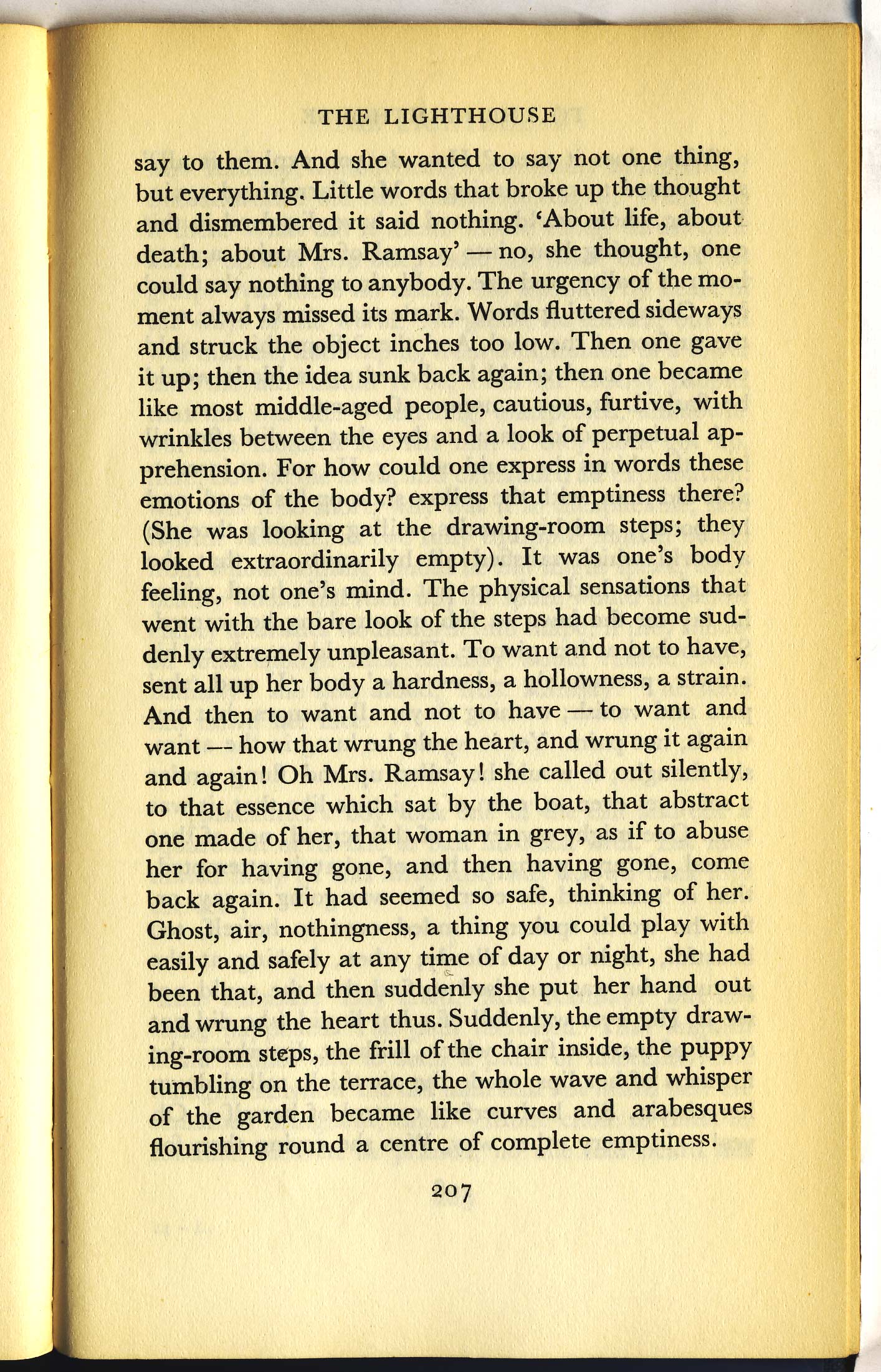
THE LIGHTHOUSEsay to them. And she wanted to say not one thing,but everything. Little words that broke up the thoughtand dismembered it said nothing. ŌĆśAbout life, aboutdeath; about Mrs. RamsayŌĆÖ ŌĆö no, she thought, onecould say nothing to anybody. The urgency of the mo-ment always missed its mark. Words fluttered sidewaysand struck the object inches too low. Then one gaveit up; then the idea sunk back again; then one becamelike most middle-aged people, cautious, furtive, withwrinkles between the eyes and a look of perpetual ap-prehension. For how could one express in words theseemotions of the body? express that emptiness there?(She was looking at the drawing-room steps; theylooked extraordinarily empty). It was oneŌĆÖs bodyfeeling, not oneŌĆÖs mind. The physical sensations thatwent with the bare look of the steps had become sud-denly extremely unpleasant. To want and not to have,sent all up her body a hardness, a hollowness, a strain.And then to want and not to have ŌĆö to want andwant ŌĆö how that wrung the heart, and wrung it againand again! Oh Mrs. Ramsay! she called out silently,to that essence which sat by the boat, that abstractone made of her, that woman in grey, as if to abuseher for having gone, and then having gone, comeback again. It had seemed so safe, thinking of her.Ghost, air, nothingness, a thing you could play witheasily and safely at any time of day or night, she hadbeen that, and then suddenly she put her hand outand wrung the heart thus. Suddenly, the empty draw-ing-room steps, the frill of the chair inside, the puppytumbling on the terrace, the whole wave and whisperof the garden became like curves and arabesquesflourishing round a centre of complete emptiness.207









